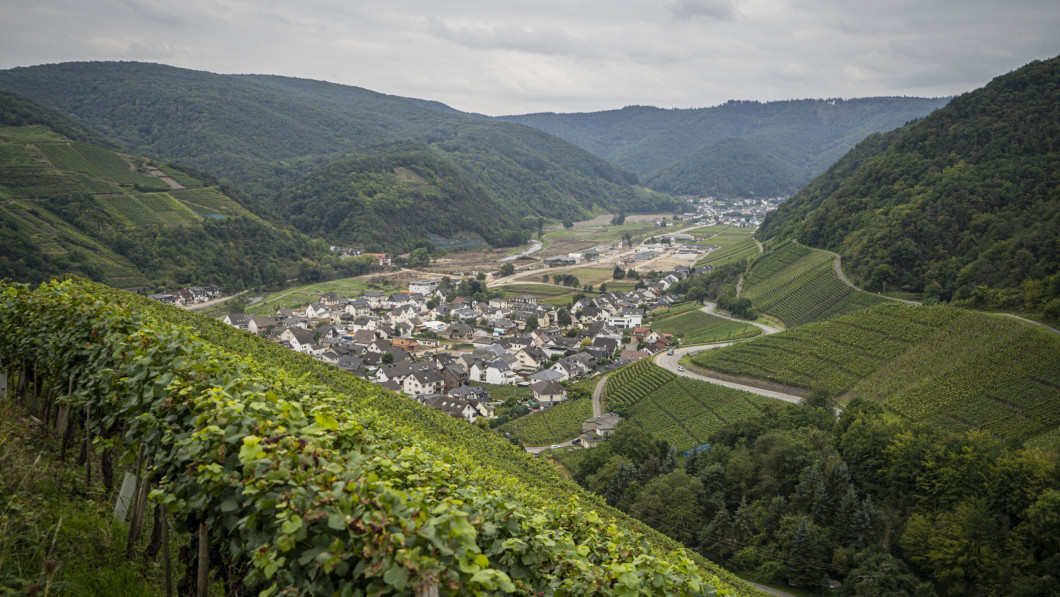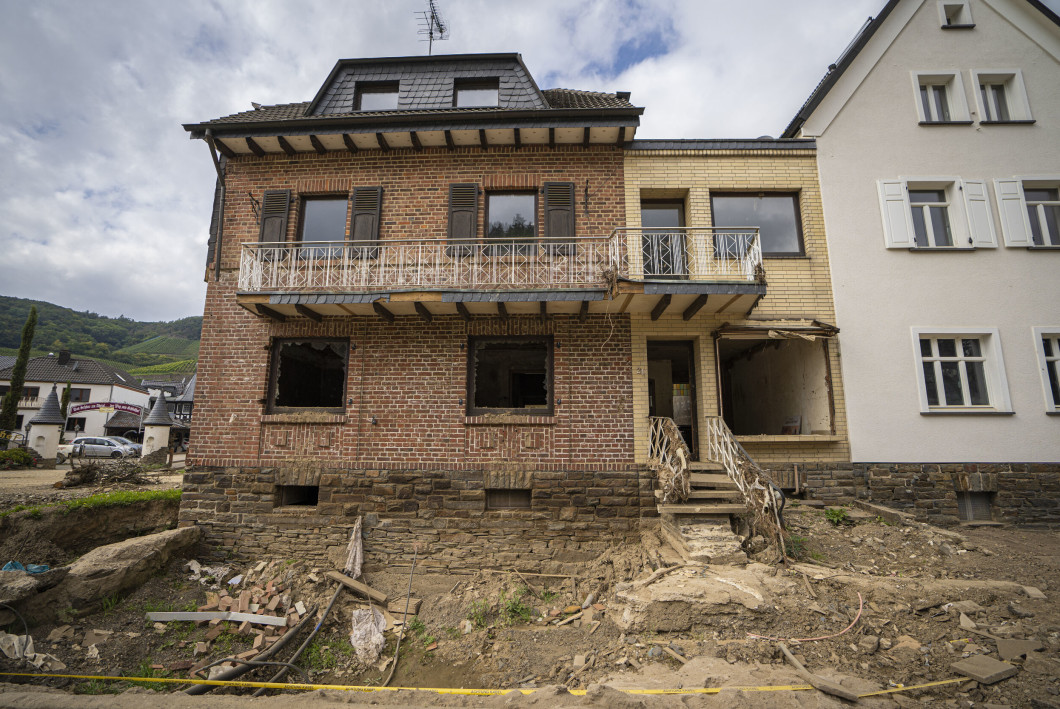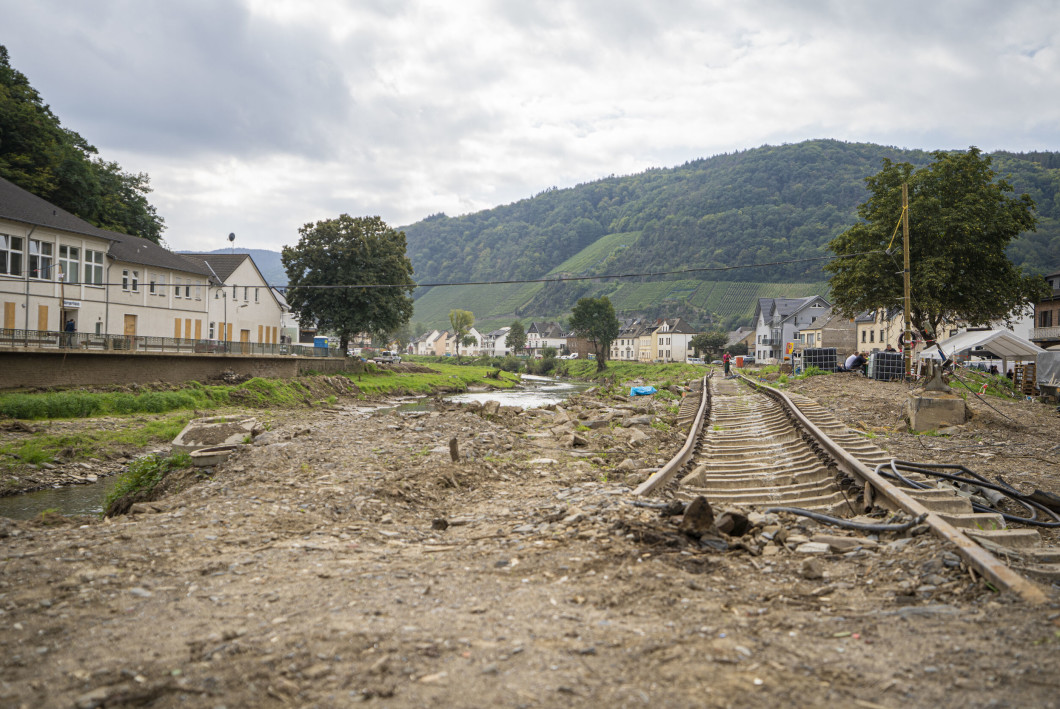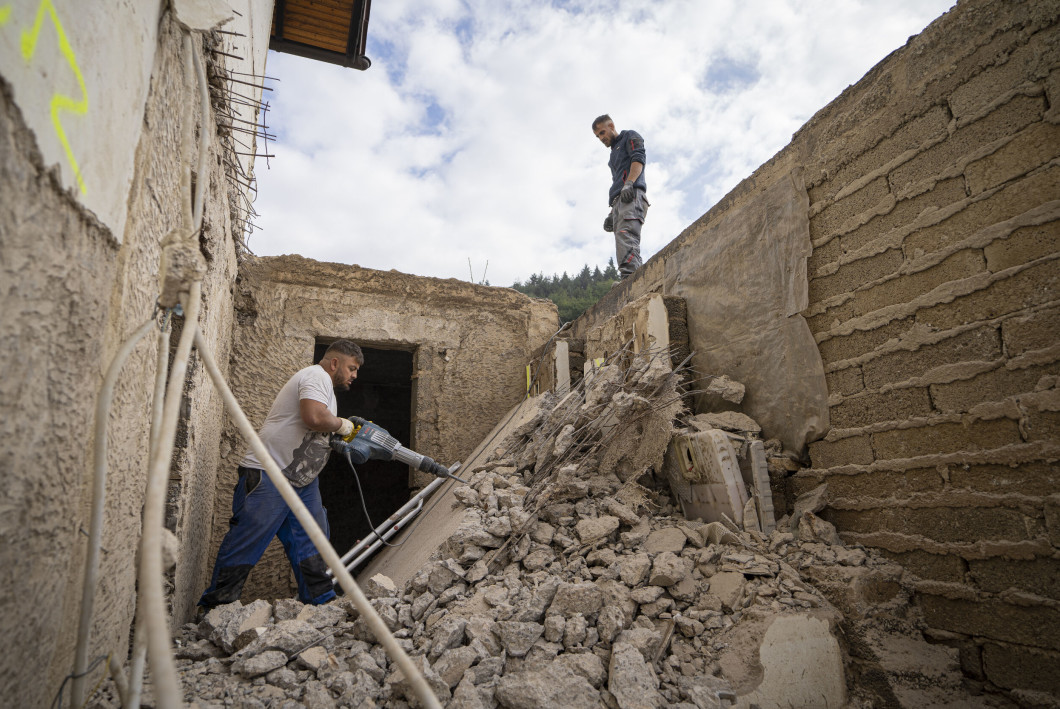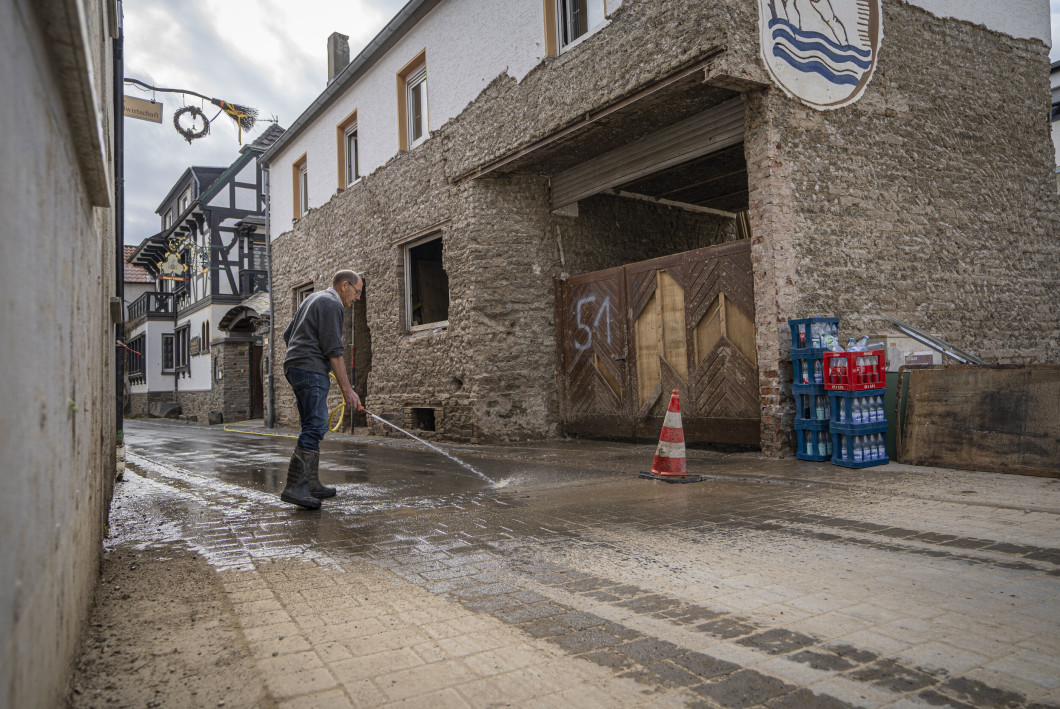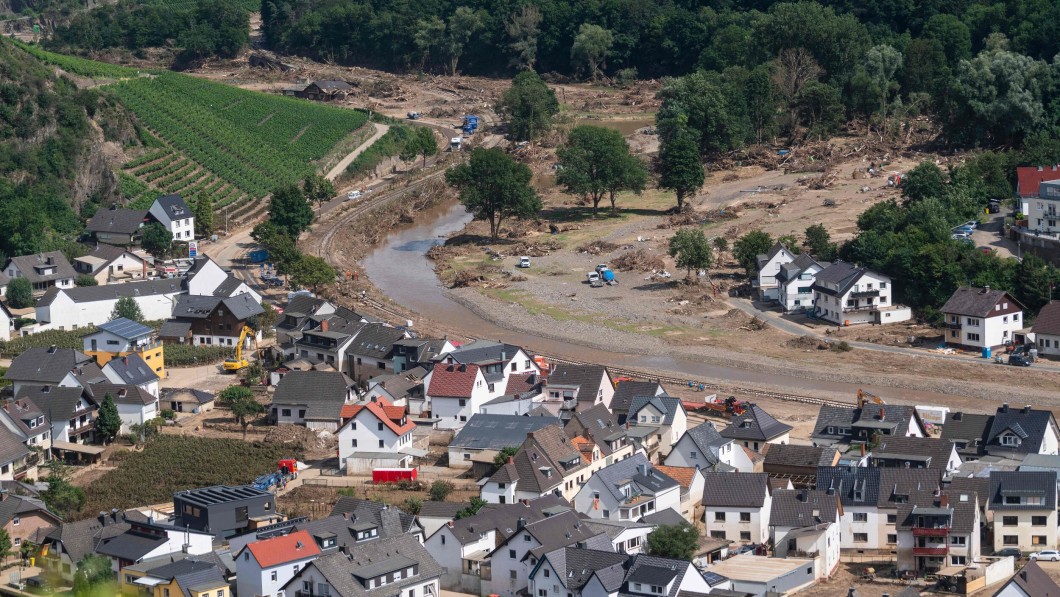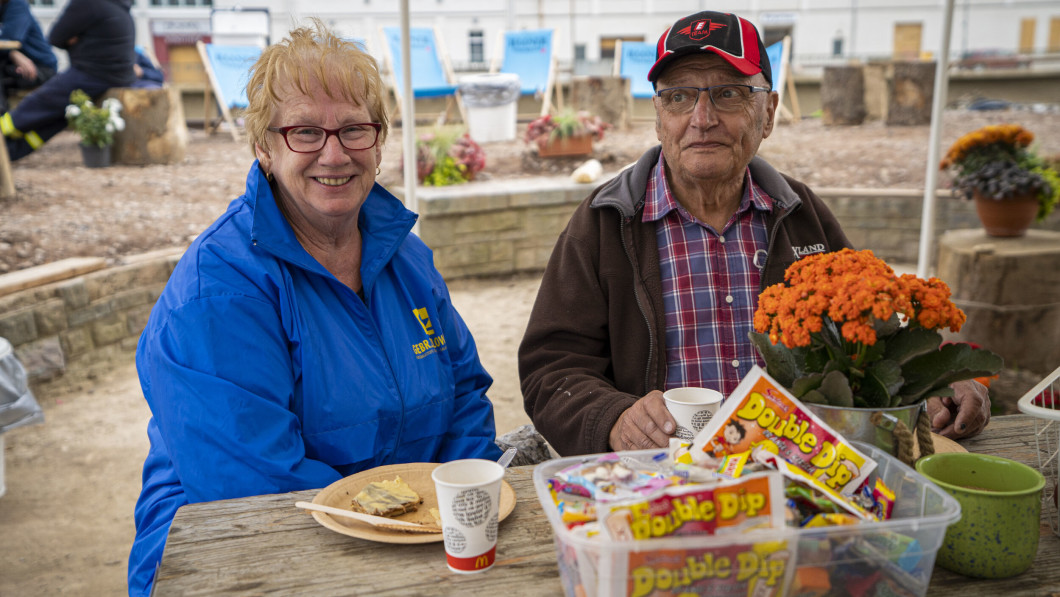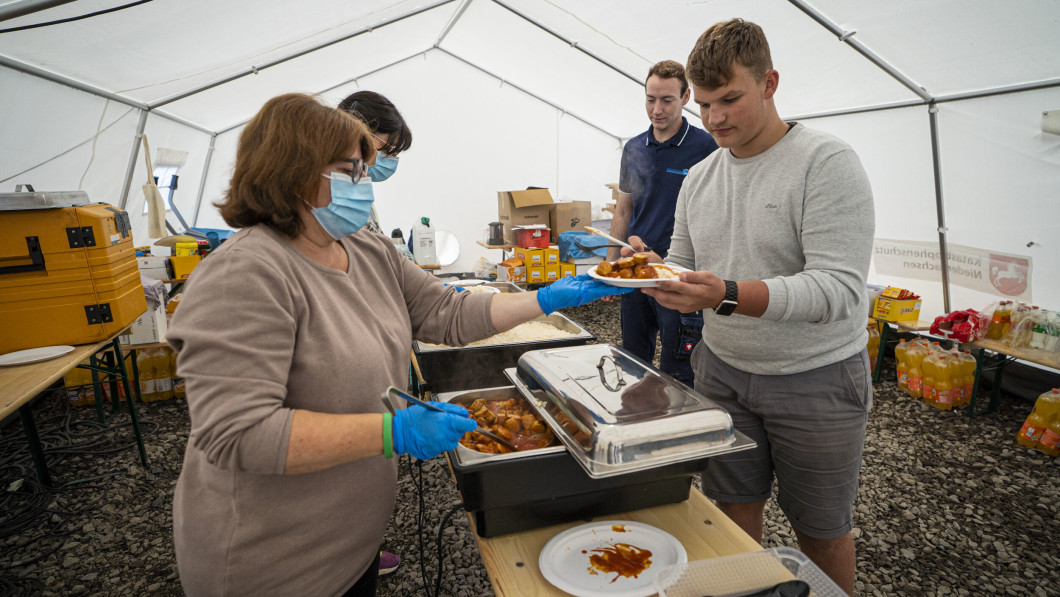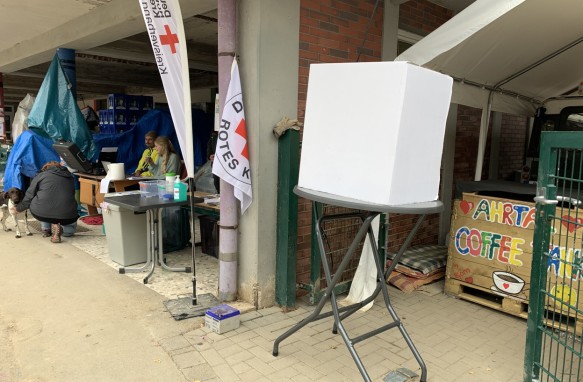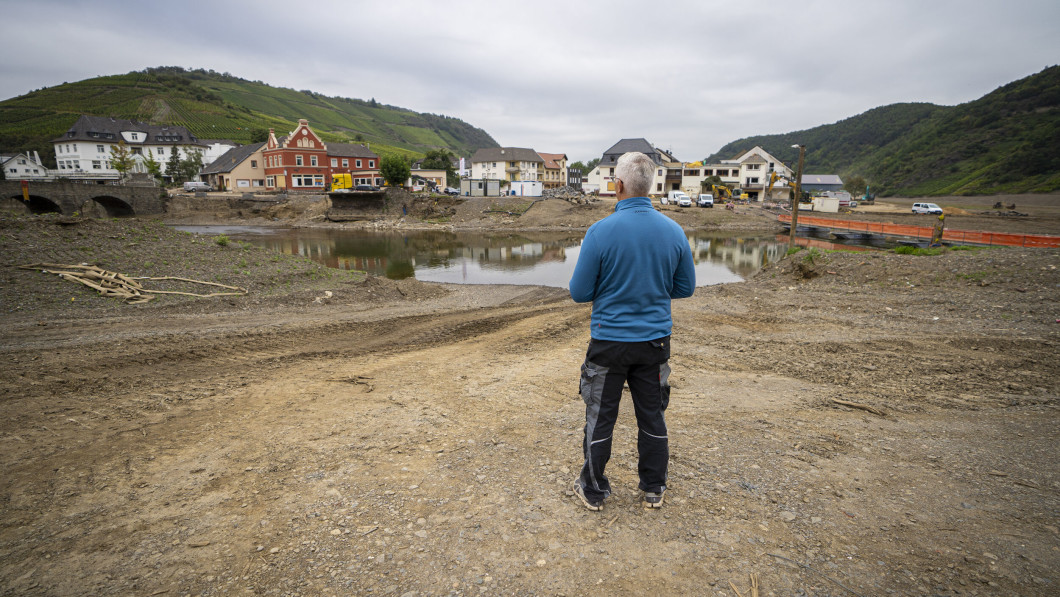Dominik Gieler stands where his childhood home once stood. All that remains is a pile of dirt.
He can still imagine what it was like before:
The houses were close to each other here. There were narrow streets between the houses, and at the top was the square, where we used to have parties and social gatherings.
Just below, the Ahr River flows peacefully past.
This is what it looks like in Feather two months after the flood. Photo: Hilde Gran/TV 2
On a fateful July night, the river turned into an eight-meter tidal wave that swept house after house.
More than 180 people died in the deadly flood. One of them was Geller’s mother, Angie.
– Can’t be saved
Just before midnight on July 14, the 35-year-old received the last message from his mother. Then the water masses tore apart the neighboring houses. She was scared.
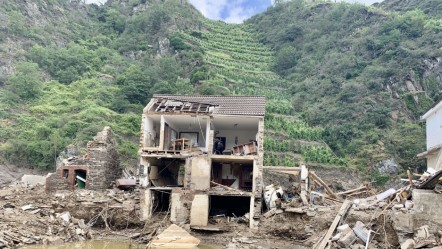
The mayor is in the middle of his own drama: – You don’t have time to grieve
– She wrote that she had a bad feeling, that the neighboring houses had disappeared. Geller says she has a bad feeling.
That he couldn’t save her, even though he was only five minutes away, it hurt thinking about him.
– I got trapped in my house. I had one meter of water on the ground floor, and the street in front of my house turned into a flowing river. My kids were there, and I couldn’t go.
The blocks of water not only took the mother’s house, but also swallowed up all the land on which the house was standing.
Her body was found 15 kilometers away several days later.
Still a disaster area
Previously, the beautiful Ahr Valley was famous as the smallest and northernmost wine region in Europe. Red wine made from spätburgunder grapes is the valley’s specialty.
Photography: Soroush Sadat / TV 2
Now the valley is associated with disaster.
More than two months after the Great Flood, cleanup work is still in full swing. Village after village lies in ruins.
Geller says Ordalene has been affected by floods in the past, too, but not as often as this summer.
– Yes, we are used to flooding here. In 2016, we had what we then considered a fairly large flood. Then the water level rose 3.6 metres. But this summer the water rose by 10.3 metres.
In August, the international research group World Weather Attribution (WWA) published a Report That indicated that global warming had exacerbated the rains that hit Germany and Belgium in July.
This photo was taken in July, right after the flood. Photo: Bernd Lotter
“I know there are divided opinions on this, but my personal opinion is that what happened here was related to climate change,” says Geller.
– What we see is that the floods are getting worse. 1910 was bigger than 1804. 2016 was worse than 1910. That’s how it goes.
Elections in the disaster zone
At the same time that Ordalen residents are building their lives after the flood, they will also vote in the federal election on September 26.
Climate is a topic that preoccupies most Germans before the elections. In the country survey 47 percent The climate and the environment are most important to them in this election.
Many of those meeting at TV Two in Urdalen say the great flood in July was tangible evidence that climate change exists, but are quite concerned that politicians won’t forget about them when the election campaign is over.
– We hope we will not forget, and that the politicians will continue to support us and help us rebuild Ahrdalen, says Willi Josten.
The Justin couple lost everything they owned in the flood. Now they hope that politicians will help the people in Ordelen as well after the September 26 elections. Photography: Soroush Sadat / TV 2
He and his wife sit on a bench and eat a hot meal they received from volunteers when TV 2 meets them. They lost the house in the flood.
His wife, Crystal, nodded as her husband said:
– We just want to help. Our house was razed to the ground and we had nothing left. But we want to stay here. We want politicians to help us rebuild.
Volunteers distribute food to flood victims and relief workers in Rish. Photography: Soroush Sadat / TV 2
Because many schools and municipalities were destroyed in the floods, the authorities set up a separate “election bus” that moved around the various villages and set up temporary polling stations outdoors or in tents.
A temporary polling station has been established in the village of Denau. Photo: Hilde Gran/TV 2
Today, the election bus arrived in the village of Denau, five minutes from Riche.
Here TV 2 meets Hedwig Walbröl. For her, this choice is about thinking in a new and sustainable way.
– Of course. The most important thing we do is think about the future. The future of our children and grandchildren.
– That’s how we should think when we’re rebuilding, too. Walbrol says: We must find balance between humans and nature again.
Photography: Soroush Sadat / TV 2
Mayor Geller is determined that his mother’s death and all the destruction will lead to changes in the future – and that the village will be built in a greener, more sustainable way.
We cannot rebuild as before, we have to think in a new way, says Geller.
It is more important than ever, and we must start now. Not in a year, or two, or three, or five years. The foundation must now be laid.

“Organizer. Social media geek. General communicator. Bacon scholar. Proud pop culture trailblazer.”



